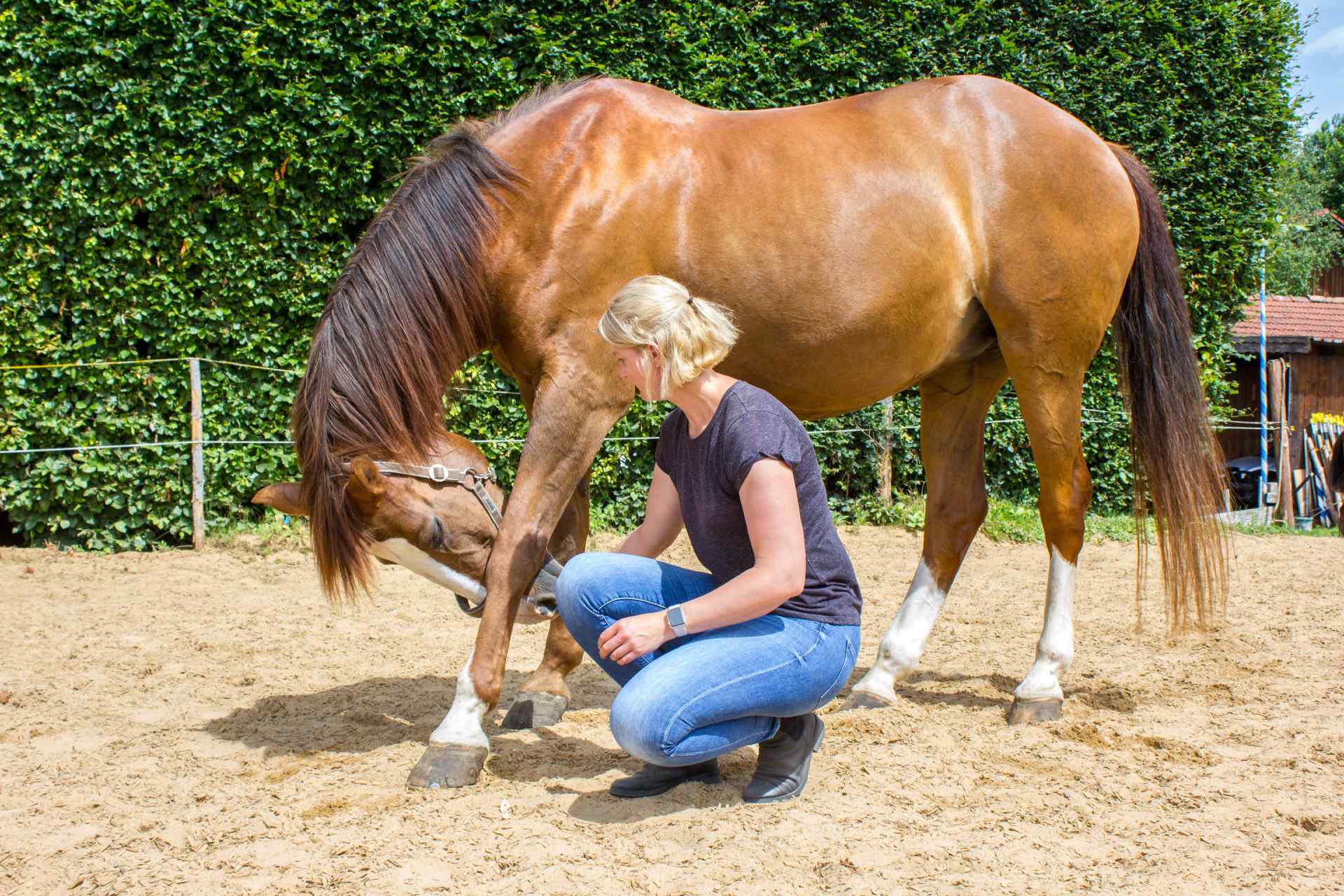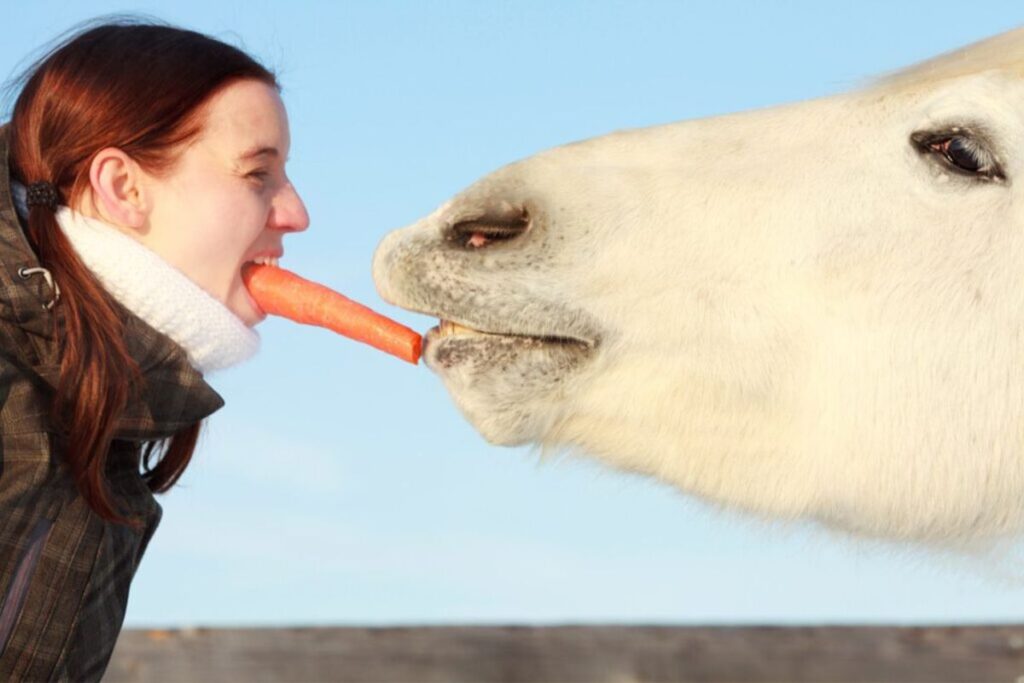Menu

Have you also experienced that your horse knows the dressage program almost by heart? It knows when to turn, when to stand still or at which letter in the arena it is time to start cantering. Horses are actually quite good at predicting your actions. Why is that? A study has tried to figure it out. Learn more about it here.
You may also like to read: If you were a horse, what breed would you be?
You might remember your time on the sweet and well-behaved little pony at your riding school when you were a child. You also went to your first competition on this adorable pony. He knew exactly what to do, when to do a halt and when to start trotting. Sometimes, you did actually suspect the pony of being able to read your mind - or know everything by heart. Whether horses know things by heart is difficult to say. Not much science indicates that they do. However, research and study do show that horses have a very advanced ability to read your intentions.
Horses are a bit like dogs when it comes to learning new tricks the study shows. Most horses react really quickly when the trick involves treats. So well that some of them begin the do a certain exercise before they are meant to. This should of course not be rewarded because we are the ones to decide when a trick is about to start.
But what if the tiny signals we give, and not being aware that we do it, are the reasons that the horse starts the exercise ahead of time. The study shows that this seems to be the case. Horses are so good at interpretting a situation that they often know what is next before we do. French scientists were very surprised by this ability when they, through a study, realised just how evolved horses are at this.

The scientists Léa Lansade, PhD, from the French Horse and Riding Institute and the National Institute for Agricultural Research’s behaviour science department, explains in a report about the study how horses actually learn to read humans so well. The study involved 21 privately owned horses all fed with carrots in three different scenarios by a person none of the horses knew beforehand. In all three cases the horses were separated from the human by a plastic window.
1. The person only brought the carrots with him but removed them every time the horse tried to reach them.
2. The person wanted to give the carrots to the horses but had problems doing it because he had difficulties accessing them.
3. The person kept dropping the carrots every time the horse was supposed to have one.
You may also like to read: Scientists say: Horses can sense your emotions
Léa Lansade explains that there was a massive change in the horses’ behaviour depending on which situation they were taking part in. Especially in scenario number 3, the horses showed an interesting feature when the person kept dropping the carrots. In this situation the horses continued communicating with the person by pressing the muzzle on the window. The opposite happened when the person intentionally moved the carrots away from the horse. In this situation the horses were remarkably quick to remove their head and look away from the person.
Even if most of us do have a feeling that horses are sometimes reading our minds, this is not exactly the case. In fact, horses are just more intuitive than previously expected. Scientists in the study are very surprised how fast the horses learned the three different systems with the carrots. Perhaps this explains some of the questions all horse owners have, when we suddenly have a horse doing tasks, we did not actually ask for.
Study: Horses Categorize Human Emotions Cross-Modally Based on Facial Expression and Non-Verbal Vocalizations
This article was originally published in November 2020 and has since been revised and edited.